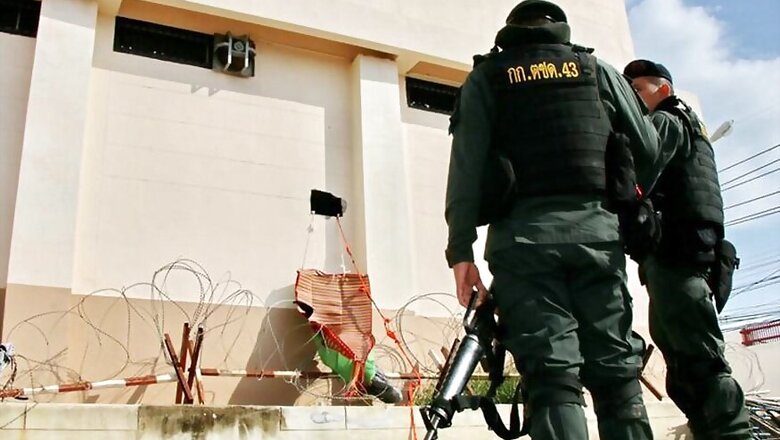
views
Beijing: China said on Tuesday it has urged Thailand to "quickly bring to justice" 20 ethnic Uighur Muslims from China who broke out of a Thai detention centre through a hole in the wall, using blankets to climb to the ground.
Twenty-five Uighurs dug through their cell wall with broken tiles to make their dramatic escape from the centre in Thailand's southern Songkhla province, near the border with Malaysia, early on Monday.
As of Tuesday, 10 had been caught, leaving 15 whose whereabouts were still unknown, according to Thai police, who said checkpoints had been set up along the border.
The escapees were part of the last remaining group of more than 200 Uighurs detained in Thailand in 2014.
Members of the group identified themselves as Turkish citizens and asked to be sent to Turkey but more than 100 were forcibly returned to China in July 2015, a move that sparked international condemnation, including from rights groups who feared they could face torture in China.
Chinese Foreign Ministry spokesman Lu Kang said China would continue to strengthen cooperation with Thailand on the detainees' escape and closely follow the situation.
"China has already urged the relevant Thai department to quickly bring the relevant people to justice," he said at a regular news briefing.
Over the years, hundreds, possibly thousands, of Turkic-language speaking Uighurs have escaped unrest in China's western region of Xinjiang by travelling clandestinely via Southeast Asia to Turkey.
The Chinese government has blamed violence in Xinjiang between majority Han Chinese and Uighurs on separatist Islamist militants, though rights groups and exiles say that anger over strict Chinese controls on the religion and culture of Uighurs is to blame.
Exiled ethnic Uighur leader Rebiya Kadeer called on Thailand and any country that may find the Uighurs to treat them according to international law and not hand them over to China.
"The Uyghurs took the risk of capture and perhaps harsh repercussions to try to save themselves from indefinite detention in Thailand and from deportation to China," Kadeer said in an email released by the World Uyghur Congress, which she heads.
"[Whether they] are indeed Turkish nationals as they claim or Chinese nationals as China claims, the fact that they are ethnic Uyghur is enough for them to face persecution and harsh punishment," she said.
Kadeer is a former political prisoner in China accused of leaking state secrets in 1999. She was later allowed to leave on medical grounds and lives in the United States.
Amnesty International has said that Chinese authorities in recent months have detained up to 30 of Kadeer's relatives.
China routinely denies accusations of rights abuses in Xinjiang, though it has admitted a problem with torture of detainees and has pledged to stop mistreatment of prisoners.
On the borders of Central Asia, Afghanistan and Pakistan, the region is one of China's most sensitive domestic issues, and the government has dramatically ramped up police operations there and set up what critics characterise as "re-education" camps and oppressive surveillance.




















Comments
0 comment